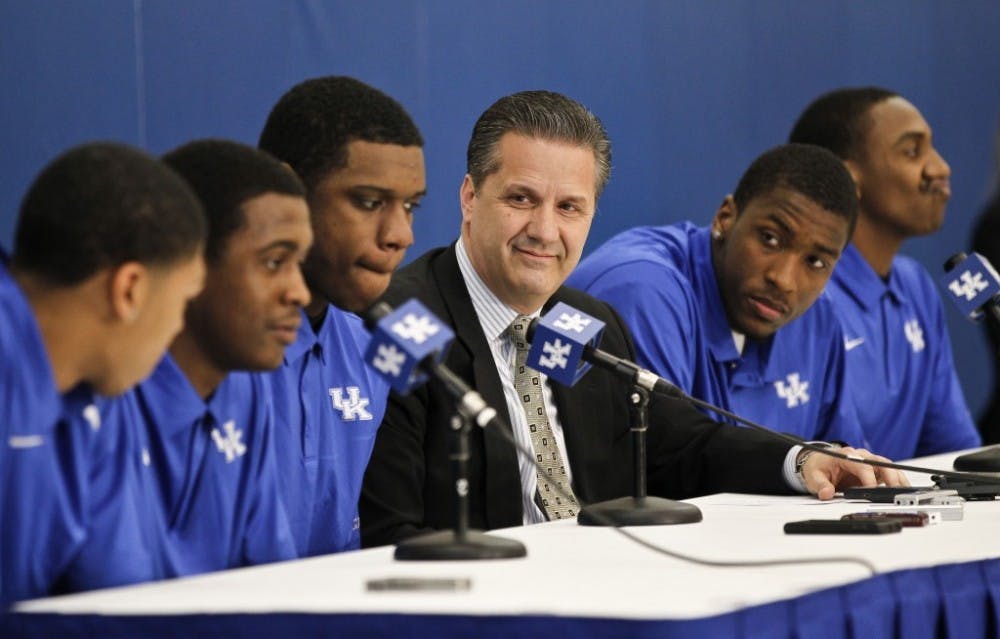Though many think the rule reads that high school basketball players have to attend one year of college before being eligible to play in the NBA, that’s not the case at all. It’s just the way everyone sees it.
Under the NBA’s collective bargaining agreement, which was passed in 2006, high school athletes have to be at least 19 years old and one year removed from high school before being eligible for the NBA Draft. Nothing about the rule says anything about having to attend college for one year. Players have the option to simply take the year off, or play overseas for a year, then enter the draft.
Sure we’ve seen great players like LeBron James, Kobe Bryant, Dwight Howard and Kevin Garnett successfully go “prep-to-pro” and have spectacular careers, but what about the rest of the guys that didn’t have the same spectacular career? What do these players do when the promise of a great career and loads of money doesn’t pan out? They didn’t go to college, so they’re not educated for anything except “do you like fries with that?”
The NBA needs to follow in the NFL’s footsteps. The NFL has a requirement that each of its players must be three years out of high school. Though it doesn’t necessarily state the players must go to college, majority of, if not all of the players taken in the NFL Draft, are collegiate athletes. Very rarely is an athlete from another league drafted in the NFL Draft.
As a football player, going to college before you can become a professional allows you to complete three years of college, meaning you would have one more year to go, or in some cases just one more semester, to finish college and have a degree to add to your name.
So with the one-year requirement basketball players have instead of the three for football players, is the value of education being diminished?
With a three-year requirement, student-athletes can finish 75% of their education (if not more). By this time, players have a general idea of whether they’ll make it in the NFL or the NBA. If there’s any question at all, they only have to come back for one more year to finish their degree, not to mention they can finish what they started three years prior. Following college, these athletes can then test the waters of their respective professional leagues. If they make it, they continue their dream. If they don’t, they have a college degree to fall back on.
Basketball’s requirements don’t allow any of this to happen. After one year, student-athletes aren’t even close to finishing a degree. Sure sometimes there are “can’t-miss” superstars that have superhuman abilities for their age, but that’s a very small percentage of players. Kevin Durant made it in the NBA, but what about the guys like Greg Oden (who was taken first overall ahead of Durant in 2007). He played one season at Ohio State before entering the 2007 NBA Draft, but injuries have effectively killed his career, as he is currently not on an NBA roster after being waived by the Portland Trail Blazers on March 15, 2012. Over the course of his career, Oden has played a total of 82 games in the NBA, equaling one full season.
Education helps a person grow into a responsible young-adult. College teaches them responsibility that no professional sports league can ever come close to teaching them. If the kid is good enough to be a pick in the NBA Draft right out of high school and succeed in the league, then he shouldn’t have any problem getting a full-ride scholarship somewhere to play basketball.
Let college do its job. College athletics can filter out the athletes that will have the physical and mental maturity to succeed as professionals. Sports aren’t everything in the world. If they wont fit in the league, college can teach a student other options that will allow them to succeed in life. The NCAA runs advertisements that their student athletes are going pro in something other then sports. Is that entirely true though?


